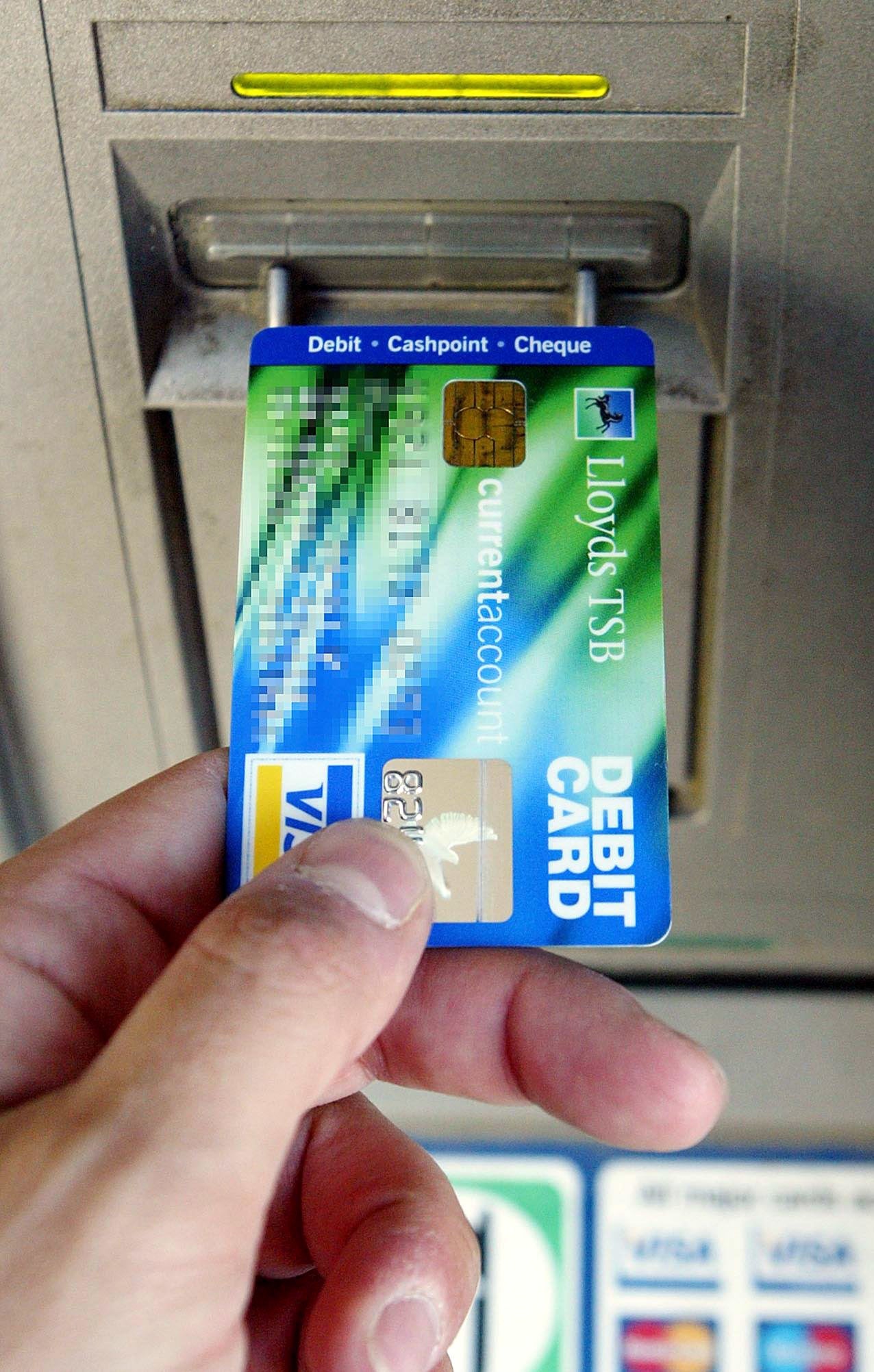New banking hubs announced to help communities with their cash needs
An additional 13 hubs, which share banking services, will be created in UK communities, after many bank branches have shut in recent years.

More banking hubs – which help to fill gaps in access to cash – will be rolled out in UK communities, it has been announced.
An additional 13 hubs will be created, bringing the total number planned to 25, according to ATM network Link and the Cash Action Group, which includes banking industry representatives and others.
Banking hubs operate in a similar way to bank branches, but their services are shared, with banks providing staff on rotation so that trained specialists from different banks are available on different days.
The 13 new hubs will be in locations including Brechin in Angus, Forres in Moray, Carluke in Lanarkshire, Kirkcudbright in Dumfries and Galloway, Axminster in Devon, Barton-upon-Humber in Lincolnshire, Lutterworth in Leicestershire, Royal Wootton Bassett in Wiltshire, Cheadle in Staffordshire, Belper in Derbyshire, Maryport in Cumbria and Hornsea in Yorkshire.
Additionally, the first banking hub under the scheme in Northern Ireland will open in Kilkeel in Newry.
The banking hub is the centre of our community
Banks and building societies have asked Link to identify communities that need help and the locations have been selected as part of that work.
The first banking hubs were piloted last year in Cambuslang, South Lanarkshire and Rochford in Essex. The two hubs have already had approaching 60,000 customer visits and transactions worth £16 million have taken place since they opened.
As the impact of the cost-of-living crisis becomes increasingly apparent, the hubs are likely to become an ever more important resource, particularly in communities with minimal or limited cash access or banking facilities, those behind the initiative said.
John Bachtler, chair of the Cambuslang Community Council, said: “The banking hub is the centre of our community and it’s bringing life back to the high street and crucially helping people and businesses with their everyday banking needs.
“It gets busier and busier every week and we know it will make a significant difference in other communities across the UK.”
Bank branch closures, alongside other trends, have sparked concerns about people’s continued ability to easily access cash.
With the cost-of-living crisis biting, more and more people are turning to cash as a way of budgeting effectively
The Post Office also has an agreement that helps people to do their everyday banking over its counters.
Convenience stores have also been offering cashback at tills as part of the initiatives to address gaps in the cash system.
There are also initiatives under way to provide standalone deposit services and banking services in libraries or community centres.
The UK Government has also said that people across the UK will benefit from new legislation to protect access to cash.
Natalie Ceeney, chair of the Cash Action Group, said: “Cash still matters hugely to millions of people across the UK and with the cost-of-living crisis biting, more and more people are turning to cash as a way of budgeting effectively.”
She continued: “This is only the start. The hub network will expand significantly to meet the demand of communities across the UK. I would expect us to be supporting hundreds of communities within a few years.”
John Howells, CEO of Link, said: “The UK isn’t ready to go cashless yet and it’s vital to protect our national cash infrastructure for the millions of consumers who still rely on cash. The intended legislation is a very positive step that will ensure access to cash for UK consumers for years to come.
“Any community with a problem with access to cash can now contact LINK and ask for help.
“We will also proactively check every community where ATMs and branches are closing to see if help should be provided. Where a community lacks the access that it needs, Link will commission services such as free ATMs and shared banking hubs from the new company being set up by the banks.
“The Financial Conduct Authority is working with Link to oversee the whole approach and make sure that communities get the help that they need.”
It's encouraging to see the banking industry announce more banking hubs which, alongside other bank alternatives such as enhanced Post Offices, could play a role in ensuring local community's cash needs are met
Jenny Ross, Which? money editor, said: “The country’s cash infrastructure has been cut to the bone in recent years due to ATMs and bank branches closing, leaving millions of consumers who rely on cash and face-to-face banking services at risk of being cut adrift.
“It’s encouraging to see the banking industry announce more banking hubs which, alongside other bank alternatives such as enhanced Post Offices, could play a role in ensuring local communities’ cash needs are met.
“These hubs, as well as ones announced in December, must open as soon as possible so consumers can benefit.
“However, only long-promised legislation will properly protect cash.
“The Financial Conduct Authority must be given the appropriate powers to oversee the framework of the country’s cash system, including determining a local community’s access to cash needs based on geographic distances, as well as holding banks to account.
“Given the rate of bank branch and ATM closures in recent years, that cannot happen quickly enough.”
Bookmark popover
Removed from bookmarks